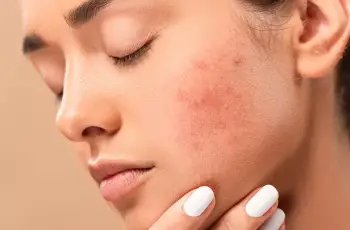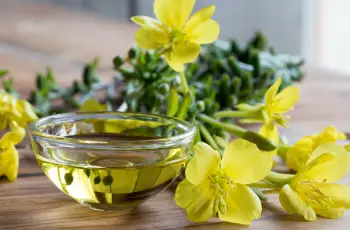
**Fatty Alcohols in Skin Care Products: Understanding Their Role, Benefits, and Uses**
Fatty alcohols are essential ingredients in many skin care products, yet their inclusion often raises questions about their purpose and impact on the skin. These ingredients have earned a reputation in the beauty industry for improving the texture, feel, and effectiveness of various products. But despite their common use, there is some confusion about whether fatty alcohols are beneficial or harmful to the skin.
In this article, we will dive deep into the role of fatty alcohols in skincare, explaining their chemical structure, their benefits, and why they are found in alcohol-free skin care products. Additionally, we will clarify any misconceptions about their use, offering insights into the different types of fatty alcohols used in skin care formulations and what makes them a valuable addition to your skin care routine.
### What Are Fatty Alcohols and Why Are They Used in Skin Care?
Fatty alcohols, often referred to as long-chain alcohols, are not the same as simple alcohols such as ethanol or isopropyl alcohol, which are commonly associated with drying out the skin. Instead, fatty alcohols have a much larger molecular structure, consisting of long carbon chains with an alcohol group (-OH) attached at the end. These fatty alcohols can be derived from a variety of sources, including plant-based oils, animal fats, and even synthetically produced ingredients.
In skin care products, fatty alcohols play a crucial role in improving the consistency, texture, and functionality of creams, lotions, moisturizers, and other topical treatments. Their versatility as emollients, emulsifiers, surfactants, and thickeners makes them a key ingredient in many cosmetic formulations. By providing a smoother, more luxurious texture, fatty alcohols enhance the sensory experience of using skin care products. They also serve practical functions like stabilizing emulsions, improving moisture retention, and ensuring uniform application.
### The Role of Fatty Alcohols in Skin Care Products
Fatty alcohols contribute significantly to the texture, stability, and efficacy of skin care products. Below, we break down the various roles they play in cosmetic formulations:
#### 1. **Fatty Alcohols as Emollients**
Emollients are ingredients that soften and soothe the skin by creating a smooth, even layer on the surface. Fatty alcohols, with their large, flexible hydrocarbon chains, are excellent emollients. They work by filling in the spaces between skin cells, leading to smoother skin and improved moisture retention. As emollients, fatty alcohols help prevent the skin from feeling dry and rough, making them a key ingredient in moisturizing products such as creams and lotions.
The emollient properties of fatty alcohols allow them to reduce the appearance of dryness and promote a healthy, hydrated look. They create a thin, non-greasy barrier that helps the skin retain moisture, making them beneficial for people with dry or sensitive skin types. Additionally, the smoothness they provide enhances the feel of the product when applied to the skin, giving it a more luxurious and elegant texture.
#### 2. **Fatty Alcohols as Surfactants**
Surfactants are compounds that lower the surface tension between two substances, allowing them to mix more effectively. In skin care products, surfactants are important because they help combine oil and water-based ingredients into a stable, homogeneous mixture. Without surfactants, oil and water would separate, resulting in an inconsistent and uneven product.
Fatty alcohols act as surfactants by reducing the surface tension between water and oil components in skin care formulations. This allows for the effective blending of ingredients, ensuring that both oil-soluble and water-soluble components are evenly distributed throughout the product. As a result, fatty alcohols improve the overall performance of skin care products, allowing them to deliver hydration and nourishment to the skin more effectively.
#### 3. **Fatty Alcohols as Emulsifiers**
An emulsion is a mixture of two substances that typically do not mix well, such as oil and water. Fatty alcohols are used as emulsifiers in skin care products to help keep the oil and water phases from separating over time. Without emulsifiers, products like lotions or creams could separate into two distinct layers, one oily and the other watery.
As emulsifiers, fatty alcohols help maintain a stable blend, ensuring that the product remains consistent and effective. They create a stable network within the formula, which keeps oil and water properly bound together. This results in products that are smooth, easy to apply, and maintain their intended texture throughout their shelf life. The incorporation of fatty alcohols as emulsifiers ensures that skin care products maintain their integrity and performance over time.
#### 4. **Fatty Alcohols as Thickeners**
In addition to their other roles, fatty alcohols are often used as thickeners in skin care formulations. A thickener increases the viscosity (or thickness) of a product, which can make it feel more substantial and luxurious when applied to the skin. Fatty alcohols are particularly effective as thickeners because their long, flexible carbon chains can intertwine with other ingredients in the formula, creating a denser texture.
Thicker products are often preferred in skin care because they provide a richer, more substantial feel. Fatty alcohols can be used to thicken everything from lightweight serums to heavier creams and lotions. The ability to control the thickness of a product allows formulators to create a wide range of textures, from light, airy lotions to rich, dense creams that are ideal for dry skin.
### Types of Fatty Alcohols in Skin Care Products
Several different fatty alcohols are commonly used in skin care formulations. These alcohols vary in their source, structure, and function within a product. Here are some of the most popular fatty alcohols found in skin care products:
#### 1. **Behenyl Alcohol**
Behenyl alcohol is a plant-based fatty alcohol that is often derived from vegetable oils. It is commonly used as an emulsifier, thickener, and emollient in skin care formulations. It has a high melting point, which makes it ideal for use in solid products such as balms and creams. Behenyl alcohol is generally considered a clean, safe ingredient and is typically rated as non-toxic by various regulatory agencies.
#### 2. **Cetearyl Alcohol**
Cetearyl alcohol is a mixture of two fatty alcohols: cetyl alcohol and stearyl alcohol. It is often derived from coconut or palm oil and serves as an emulsifier, thickener, and emollient in a variety of skin care products. Cetearyl alcohol is widely used in lotions, creams, and other moisturizers because of its ability to improve the texture and stability of the product.
#### 3. **Cetyl Alcohol**
Cetyl alcohol is another common fatty alcohol that is derived from coconut oil or palm oil. It is used as an emulsifier, thickener, and stabilizer in skin care formulations. Cetyl alcohol helps to create a smooth, creamy texture in products and also contributes to their ability to hydrate the skin. It is often used in products designed for dry skin or sensitive skin types due to its soothing properties.
#### 4. **Stearyl Alcohol**
Stearyl alcohol is a long-chain fatty alcohol that can be derived from both plant and animal sources, although plant-based stearyl alcohol is more commonly used in modern formulations. It is used in skin care products as an emulsifier, thickener, and stabilizer. Stearyl alcohol helps improve the texture and consistency of creams and lotions while also contributing to their moisturizing properties.
#### 5. **Myristyl Alcohol**
Myristyl alcohol is derived from coconut oil or palm kernel oil and is commonly used as an emulsifier and thickener in skin care products. It helps to improve the texture of products and ensures they maintain a smooth, even consistency.
### Are Fatty Alcohols Vegan, Clean, and Organic?
Fatty alcohols can be derived from both plant and animal sources, which raises questions about their suitability for vegan, clean, and organic products. Plant-derived fatty alcohols, such as those from coconut or palm oil, are typically considered vegan and clean, as they are free from animal by-products and are often produced through sustainable practices. On the other hand, fatty alcohols derived from animal sources, such as lanolin alcohol, may not meet vegan or organic standards.
When shopping for skin care products, it is important to check the ingredient list to determine whether the fatty alcohols used are plant-based or animal-derived. Many brands offer vegan and organic options that use plant-derived fatty alcohols, making it easier for consumers to find products that align with their ethical and environmental preferences.
### Conclusion
Fatty alcohols play a crucial role in the formulation of many skin care products, providing a variety of benefits such as moisturizing, emulsifying, thickening, and smoothing. Despite their name, fatty alcohols are not harmful to the skin and are actually quite beneficial, particularly for individuals with dry or sensitive skin. They help create luxurious, hydrating products that leave the skin feeling soft, smooth, and nourished.
By understanding the role of fatty alcohols in skin care and recognizing their various benefits, you can make more informed decisions about the products you use. Whether you’re looking for a lightweight serum or a rich, hydrating cream, fatty alcohols are often a key ingredient that contributes to the effectiveness and overall sensory experience of the product.


